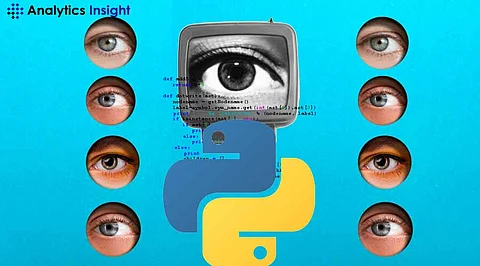

Computer vision is an area that's rapidly growing with its core foundation in computer science and image processing. It enables the computers to understand the visual world. And Python is emerging as one of the leaders in developing computer vision applications.
Here are some of the best platforms to learn computer vision with Python:
Coursera has courses on computer vision contributed by a broad range of disciplines from the top universities and instructors. One outstanding course is "Computer Vision with Embedded Machine Learning" which takes in algorithms, artificial neural networks, deep learning, and machine learning with a focus on Python programming. The majority of the programs on Coursera include hands-on projects which are integral parts of learning computer vision.
Another fantastic resource is "Computer Vision Nanodegree" with Udacity. Such programs, along with image processing and feature extraction, object detection, are all coded in Python. The curriculum is specifically designed by industry experts to be very relevant in today's job markets. In addition, mentorship, career services, and job placement through Udacity are some of the benefits.
edX is one of those platforms that provides you with courses from colleges like Harvard and MIT. There are several good courses including "Computer Vision" by Columbia University. The course includes elementary parts of computer vision like image formation, feature detection, and motion estimation with Python. Most of the edX courses are free to audit but for some money if someone wants to get certified.
Kaggle is a platform for data science competitions, however, learning resources for computer vision abound. Start with learning resources on Kaggle Learn like Introduction to Computer Vision through which you learn from the very basic concepts to hands-on coding using Python with OpenCV and TensorFlow. It also hosts datasets and competitions where you can apply your knowledge to real-world cases.
PyImageSearch is a free blogging platform on computer vision and image processing with Python. Now its founder, Dr Adrian Rosebrock compiled all the material into an easily accessible book, tutorials as well as course material.
From simple image processing to advanced deep-learning techniques. The book "Deep Learning for Computer Vision with Python" is very broad, and includes multiple practice examples and projects.
Real Python is a tutorial website that has courses on several Python topics, one of them being computer vision. Their "Face Detection with Python" tutorial is a good introduction to the subject of computer vision.
The tutorial gives an overview of the rudimentary concepts related to image processing and OpenCV's face detection. Clear in their expression, the tutorials provided by Real Python are, thus apt for beginners.
GeeksforGeeks is also a highly popular platform for coding and computer science concepts. Computer Vision articles on GeeksforGeeks include image processing, extraction of features, object detection using Python, etc. GeeksforGeeks also provides coding challenges and quizzes to test your knowledge.
YouTube is a treasure trove for free education. Great video tutorials about computer vision with Python are found in "Sentdex" and "Tech with Tim." From simple image processing to deep learning techniques, all are present.
Such video tutorials are most engaging and hence learn better as compared to text material. These are ideal for the visual learner.
GitHub is yet another code hosting and sharing repository. I should assume that there would be goldmine computer vision projects and libraries on GitHub. You could thoroughly use them for learning and experimentation.
You could look at the open-source projects and see how others have implemented computer vision algorithms, maybe even trigger some ideas to inspire your projects.
Books are a very old but very efficient way of getting basic knowledge of computer vision. You can choose one or two from "Learning OpenCV 4 Computer Vision with Python" by Joseph Howse and "Deep Learning for Computer Vision" by Rajalingappaa Shanmugamani.
It has a good and detailed explanation of computer vision principles along with several practice examples and exercises.
Learning computer vision with Python is pretty cool, and the potential is enormous – robotics, healthcare, and driverless cars-computing abilities.
The options above provide you with an opportunity to start by enrolling in any of the courses listed above-including structured, hands-on projects or self-paced learning.
